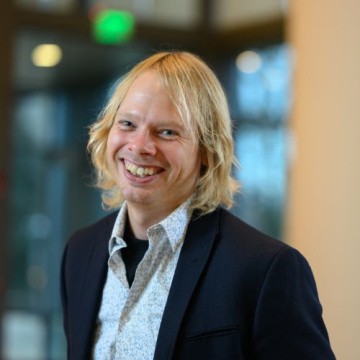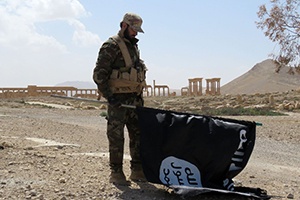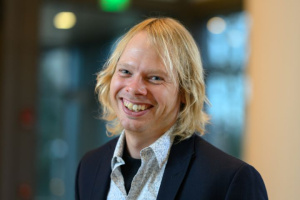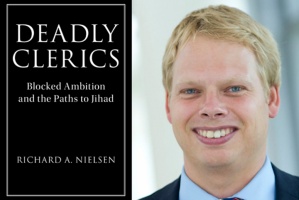
Richard Nielsen
Associate Professor of Political Science
Middle East Politics; International Relations; Comparative Politics; Religion; Gender; Statistics; Interpretive Methods
Biography
Richard Nielsen is an Associate Professor of Political Science at MIT. He completed his PhD (Government) and AM (Statistics) at Harvard University, and holds a BA from Brigham Young University. He studies and teaches on Middle East politics, International Relations, religion, gender, political violence, quantitative methodology, and interpretive methodology. His first book, Deadly Clerics, uses statistical text analysis and fieldwork in Cairo mosques to understand the radicalization of jihadi clerics in the Arab world. His research has appeared in The American Journal of Political Science, International Studies Quarterly, Political Analysis, and Sociological Methods and Research. He is the developer of free software tools for Arabic text analysis, causal inference, and qualitative case selection. At MIT, he directs the Middle East and North Africa/MIT program at the Center for International Studies, and is affiliated with the Security Studies Program, and the Institute for Data, Systems, and Society. His work has been supported by the Carnegie Corporation, the National Science Foundation, the Harvard Academy for International and Area Studies, and the Belfer Center for Science and International Affairs.
Recent Publications
"Rewarding Human Rights? Selective Aid Sanctions against Repressive States," International Studies Quarterly (30 April 2013) pp.1-13
"Foreign Aid Shocks as a Cause of Violent Armed Conflict,” American Journal of Political Science, 55 (2): 219-232 (with Michael Findley, Zachary Davis, Tara Candland, and Daniel Nielson.)
Teaching
| 17.S919 | Introduction to International Relations |
News
Biography
Richard Nielsen is an Associate Professor of Political Science at MIT. He completed his PhD (Government) and AM (Statistics) at Harvard University, and holds a BA from Brigham Young University. He studies and teaches on Middle East politics, International Relations, religion, gender, political violence, quantitative methodology, and interpretive methodology. His first book, Deadly Clerics, uses statistical text analysis and fieldwork in Cairo mosques to understand the radicalization of jihadi clerics in the Arab world. His research has appeared in The American Journal of Political Science, International Studies Quarterly, Political Analysis, and Sociological Methods and Research. He is the developer of free software tools for Arabic text analysis, causal inference, and qualitative case selection. At MIT, he directs the Middle East and North Africa/MIT program at the Center for International Studies, and is affiliated with the Security Studies Program, and the Institute for Data, Systems, and Society. His work has been supported by the Carnegie Corporation, the National Science Foundation, the Harvard Academy for International and Area Studies, and the Belfer Center for Science and International Affairs.
Recent Publications
"Rewarding Human Rights? Selective Aid Sanctions against Repressive States," International Studies Quarterly (30 April 2013) pp.1-13
"Foreign Aid Shocks as a Cause of Violent Armed Conflict,” American Journal of Political Science, 55 (2): 219-232 (with Michael Findley, Zachary Davis, Tara Candland, and Daniel Nielson.)
Teaching
| 17.S919 | Introduction to International Relations |





